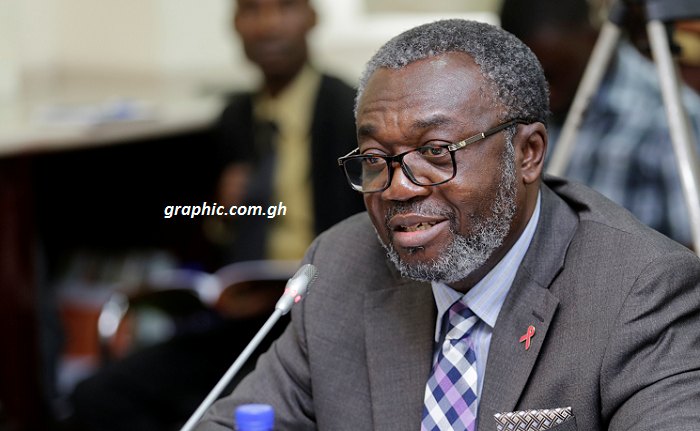
Don’t turn patients away – GHS directs all government hospitals
The Ghana Health Service (GHS) has directed all government-accredited hospitals and clinics to, henceforth, desist from turning patients away on the excuse that they have no beds.
Rather, the hospitals and clinics should make every effort to stabilise the patients before referring them to the next level facilities.
An official communication was dispatched by the GHS to all regional and district directorates of health to enforce the directive.
The Director-General of the GHS, Dr Anthony Nsiah-Asare, who signed the directive, made this known to the Daily Graphic on the sidelines of the opening session of the Maternal, Child Health and Nutrition Conference 2018 in Accra on Tuesday.
Related: Health Service investigates death of man denied care at 7 hospitals
The directive comes on the heels of the story about a 70-year-old man who reportedly died in his car at the LEKMA Hospital at Teshie in Accra after he had been turned away by seven hospitals because they claimed they had no bed to admit him.
The man, whose name has been given as Prince Anthony Opoku Acheampon, is said to have been taken first to the C&J Medicare Hospital at Adabraka on Saturday, June 2, 2018.
However, after a brief assessment, a nurse recommended that he needed to be hospitalised but said the hospital could not cater for him.
From the C&J Medicare Hospital, Mr Opoku Acheampon’s family sent him to the Korle Bu Polyclinic, the Ridge, the Police and the Trust hospitals and the La Polyclinic, before finally arriving at the LEKMA Hospital at Teshie, where he died.
The hospitals are said to have refused to admit Mr Opoku Acheampon because they claimed they did not have beds.
The GHS has decided to set up a committee to investigate the case.
Further details
Expatiating on the directive to all government-accredited hospitals, Dr Nsiah-Asare said under no circumstance should anybody at a health facility, apart from the officer in charge, who most often is a medical doctor, send a patient away because there was no bed.
“If anything happens, the officer in charge will take full responsibility, even when he or she is not around. We are regulated by the Medical and Dental Council and so if, for your inaction or action, something happens at your health facility, you will be held liable,” he said.
Condemnation
Dr Nsiah-Asare condemned the ‘no-bed syndrome’ in health facilities and warned that sanctions would be applied if any case of medical negligence was found at accredited hospitals and clinics.
According to him, under the GHS protocol on emergency services, health facilities were expected to stabilise patients, even when the facilities could not admit the patients, before referring them to a bigger facility.
“Emergency cases do not require beds; they can be attended to on couches, on tables, in wheelchairs or on trolleys,” he said.
Under the protocol, he said, it was the duty of the hospitals and clinics to arrange proper transfer of patients.
He, therefore, charged all managers of health facilities, especially chief nursing officers (CNOs), who were most often in charge of beds, to ensure that there were always beds for emergency cases.
The Minister of Health, Mr Kwaku Agyeman-Manu, who lambasted the attitude of health personnel, said currently the ministry was investigating an allegation against the Korle Bu Teaching Hospital, where beds were said to be sold to patients who needed admission.
“As health facility managers, it is our responsibility to find beds for emergency cases,” he said.
The ministry, he said, was engaging the various teaching hospitals to ensure that the ‘no-bed syndrome’ was stopped as soon as possible.
The Board Chair of the GHS Council, Dr Yaw Yeboah, also condemned the ‘no-bed syndrome’, saying the council was going to work around the clock to ensure that such an incident did not happen again.
